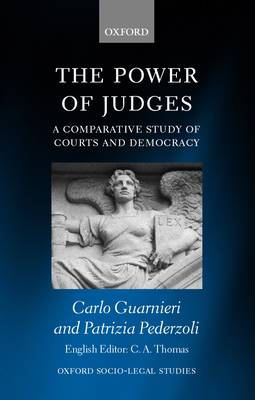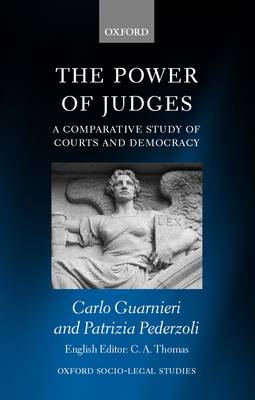
- Afhalen na 1 uur in een winkel met voorraad
- Gratis thuislevering in België vanaf € 30
- Ruim aanbod met 7 miljoen producten
- Afhalen na 1 uur in een winkel met voorraad
- Gratis thuislevering in België vanaf € 30
- Ruim aanbod met 7 miljoen producten
Zoeken
€ 230,95
+ 461 punten
Omschrijving
This book argues that three elements affect the political significance of judicial decisions. First is the status of judges (the way they are recruited and the guarantees they enjoy) and the way judges define their role in the judicial and political process. Second is the organization of the judicial system, including the existence of judicial review of legislation, the structure of trials and the arrangement of public prosecution. Thirdly, judicial power is affected by the broader political system: a polity in which power is divided and fragmented offers wider opportunities for the judiciary to intervene in the political process.
Specificaties
Betrokkenen
- Auteur(s):
- Uitgeverij:
Inhoud
- Aantal bladzijden:
- 248
- Taal:
- Engels
- Reeks:
Eigenschappen
- Productcode (EAN):
- 9780198298359
- Verschijningsdatum:
- 23/05/2002
- Uitvoering:
- Hardcover
- Formaat:
- Genaaid
- Afmetingen:
- 218 mm x 145 mm
- Gewicht:
- 436 g

Alleen bij Standaard Boekhandel
+ 461 punten op je klantenkaart van Standaard Boekhandel
Beoordelingen
We publiceren alleen reviews die voldoen aan de voorwaarden voor reviews. Bekijk onze voorwaarden voor reviews.











